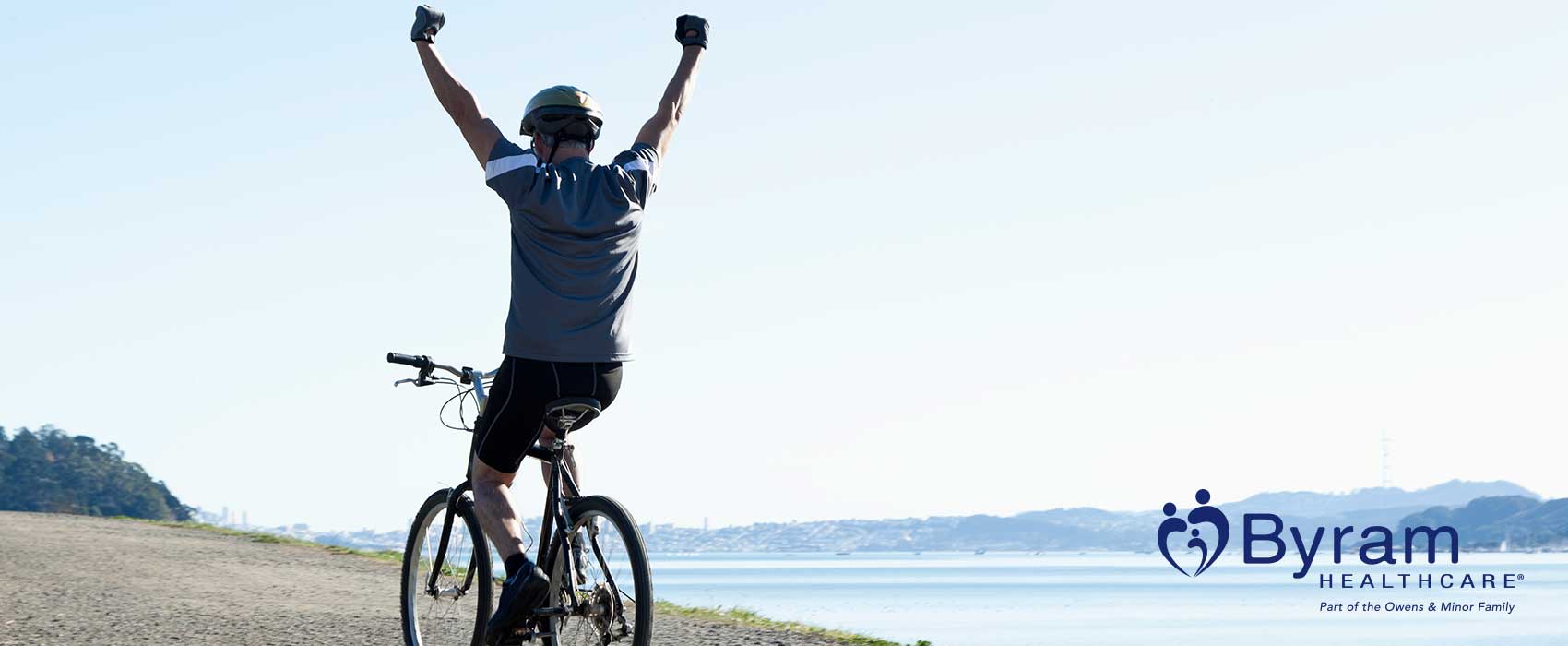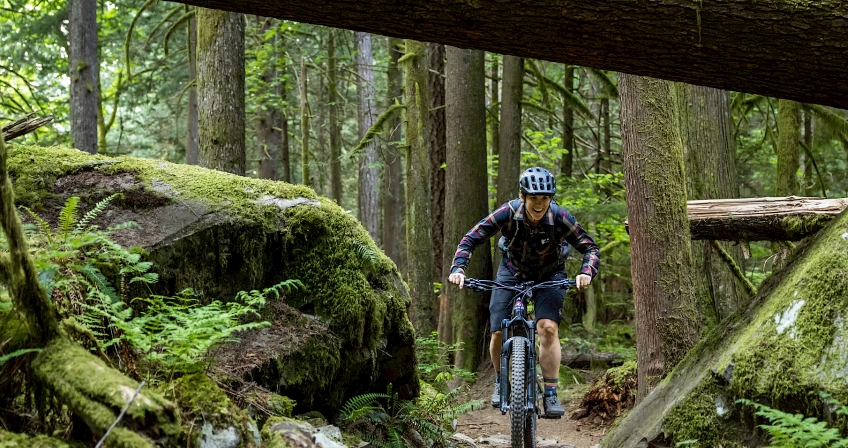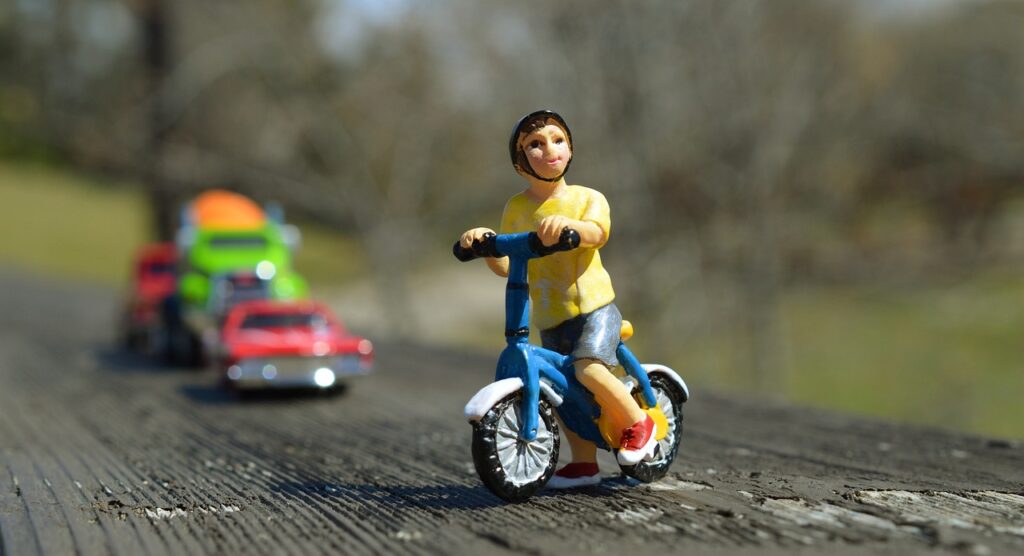Yes, mountain biking can potentially lead to prostate problems. Prostate problems can occur due to excessive pressure on the prostate gland during rough mountain biking rides, leading to symptoms such as pain, discomfort, and difficulty urinating.
Regular breaks, using the correct biking equipment, and adopting proper riding techniques can help reduce the risk of developing prostate problems. Additionally, it is important to consult a healthcare professional if any symptoms arise to receive a proper diagnosis and treatment.
By taking necessary precautions and seeking medical advice if needed, mountain bikers can continue to enjoy their sport while minimizing the risk of prostate issues.
Understanding Prostate Problems
Mountain biking may provoke prostate issues in men due to pressure on the prostate gland. Prolonged or intense biking can lead to discomfort or inflammation in the prostate, emphasizing the need for proper padding and breaks during rides to alleviate potential problems.
Regular check-ups and maintaining good biking posture are essential for prostate health.
Understanding Prostate Problems Prostate problems are a potential concern for many men, and it’s important to educate ourselves about this often-overlooked aspect of overall health. In this section, we will explore prostate health and the common issues that can arise. It’s essential to have a good understanding of these matters, especially when it comes to engaging in strenuous activities like mountain biking. So, let’s delve into the intricacies of the prostate gland and the potential problems associated with it.
Exploring Prostate Health
Maintaining a healthy prostate is crucial for men of all ages. The prostate gland, a small walnut-sized organ located just below the bladder, plays a key role in the male reproductive system. Its primary function is to produce and secrete prostate fluid, which nourishes and protects the sperm during ejaculation. A healthy prostate contributes to overall sexual function and fertility. However, various factors, such as age, genetics, and lifestyle choices, can impact prostate health.
Engaging in regular physical activity, like mountain biking, is known to have numerous health benefits. However, it’s important to acknowledge that any physical activity, especially those involving repetitive motions or prolonged periods of sitting, can potentially affect the prostate.
Common Prostate Issues
The prostate is prone to developing conditions as men age, and awareness of the common problems is vital. While it is normal for the prostate to enlarge slightly as men grow older, excessive growth can lead to a condition called benign prostatic hyperplasia (BPH). BPH can cause symptoms such as frequent urination, weak urine flow, and difficulty emptying the bladder completely. Another common issue is prostatitis, which is the inflammation of the prostate gland.
This condition can be caused by bacterial infections or other factors, and it may result in urinary problems, discomfort, and pain in the pelvic region. Prostate cancer is also a concern, being one of the most prevalent cancers in men. While the exact cause of prostate cancer is unknown, certain risk factors, such as age, family history, and race, can increase the likelihood of developing the disease. Regular screening and early detection are crucial for preventing the progression of prostate cancer.
To maintain a healthy prostate and reduce the risk of related problems, it is essential to adopt a holistic approach to your health. Incorporating a balanced diet rich in fruits, vegetables, and whole grains, along with regular exercise, can help promote overall well-being, including prostate health. In conclusion, understanding prostate problems is vital for men, particularly those who engage in activities like mountain biking. By being aware of common prostate issues, such as BPH, prostatitis, and prostate cancer, men can take necessary measures to safeguard their prostate health. Remember, prevention and early intervention play a significant role in maintaining a healthy prostate, so prioritize your well-being today.
Key points to remember:
- The prostate gland is located below the bladder and plays a vital role in the male reproductive system.
- Engaging in physical activities like mountain biking can potentially affect the prostate.
- Common prostate problems include benign prostatic hyperplasia (BPH), prostatitis, and prostate cancer.
- Adopting a balanced diet and regular exercise can contribute to overall prostate health.
- Regular screenings and early detection are crucial for preventing the progression of prostate cancer.
Debunking Myths
Mountain biking does not cause prostate problems, debunking the myth around it. Studies indicate that regular exercise, including cycling, can actually help reduce the risk of prostate issues. So, enjoy your mountain biking adventure worry-free!
Myth: Mountain Biking Causes Prostate Problems
Reality: Research and Expert Insights indicate that there is only a weak association between mountain biking and prostate problems. Long rides on poorly cushioned seats can potentially cause temporary discomfort.
Research Findings:
1. No direct link exists between mountain biking and long-term prostate issues.
2. Proper bike setup, frequent breaks, and padded shorts can reduce any discomfort.
Expert Insights:
1. Urologists recommend regular check-ups and maintaining hydration levels.
2. Good bike fit and riding techniques play a crucial role in minimizing any potential risks.
Factors Affecting Prostate Health
The health of the prostate gland is influenced by various factors, including physical activity and sitting habits. Understanding how these factors can impact prostate health is crucial for men, especially those who engage in activities like mountain biking.
Impact Of Physical Activity
Regular physical activity is essential for overall health and well-being, including prostate health.
Engaging in activities like mountain biking can provide numerous benefits, such as cardiovascular fitness, muscle strength, and stress relief. However, it’s important to note that intense or prolonged physical activity can potentially affect the prostate.
During activities like mountain biking, the prostate gland can experience pressure, friction, and vibration.
- Prolonged or frequent cycling may lead to compression of the prostate, which can affect urinary flow and potentially contribute to prostate problems.
- Constant vibration and impact while mountain biking can cause inflammation or irritation in the prostate gland.
It is essential to strike a balance between enjoying the benefits of physical activity and being mindful of the potential impact on prostate health.
Influence Of Prolonged Sitting
Prolonged sitting has become a common habit due to sedentary lifestyles and desk jobs.
Studies suggest that prolonged sitting, often associated with occupations requiring desk work, can contribute to various health issues, including prostate problems.
| Prolonged sitting can: | |
|---|---|
| 1. Increase pelvic pressure: | Sitting for extended periods can increase pressure on the pelvic region, including the prostate gland, potentially affecting prostate health. |
| 2. Reduce circulation: | Inactivity while sitting can reduce blood circulation, including to the prostate gland, potentially impacting its function. |
| 3. Impede urinary flow: | Prolonged sitting can cause constriction around the pelvis, compromising urinary flow and potentially leading to prostate-related issues. |
Avoiding prolonged sitting and incorporating regular breaks for movement throughout the day can help maintain prostate health.
Best Practices For Mountain Bikers
Mountain biking is a thrilling outdoor activity, but it’s important to prioritize your health while enjoying the sport. Incorporating certain practices into your routine can help minimize the risk of prostate problems and ensure a safe and enjoyable ride. Below are some expert recommendations for mountain bikers:
Proper Bike Setup
Ensure your bike is properly adjusted to your body proportions to prevent strain and discomfort during rides.
Health-optimized Riding Techniques
Adopting health-conscious riding techniques can reduce the impact on your body and promote overall well-being.
Importance Of Regular Check-ups
Regular check-ups are essential for maintaining men’s health, particularly for those who engage in activities like mountain biking. Prostate issues can often go unnoticed without routine screenings, potentially leading to serious health complications. Therefore, it’s crucial to understand the role of screening tests and seek professional healthcare advice to safeguard against potential problems.
Role Of Screening Tests
Prostate-specific antigen (PSA) tests and digital rectal exams (DRE) play a crucial role in detecting potential prostate problems early on. These screenings can detect abnormalities in the prostate gland, helping to identify any issues before they become more serious.
Healthcare Professional Advice
Healthcare professionals can provide personalized guidance on prostate health for mountain bikers, taking into account their specific exercise routines and potential risk factors. Regular consultations and discussions can offer valuable insights and preventive measures to mitigate any potential prostate-related issues associated with mountain biking.

Credit: www.byramhealthcare.com
Addressing Concerns
Meeting Physical Activity Guidelines
Engaging in mountain biking is an excellent way to meet physical activity guidelines. Regular exercise like biking helps maintain a healthy weight and reduces the risk of chronic diseases such as prostate problems. By spending time on the trails, riders can achieve the recommended 150 minutes of moderate-intensity exercise each week, improving overall health and reducing the likelihood of prostate issues.
Maintaining Overall Health
Mountain biking contributes to maintaining overall health. Cardiovascular health benefits from intense physical activity, while exposure to nature can also have mental health advantages. The combination of physical and mental benefits from mountain biking can significantly contribute to a healthy lifestyle, reducing the risk of developing prostate problems.
Frequently Asked Questions
Is Mountain Biking Bad For Your Prostate?
Mountain biking may potentially cause discomfort for the prostate due to prolonged pressure and movement. However, adopting proper bike-fitting and riding techniques, taking frequent breaks, and using a well-cushioned saddle can help minimize the risk. Regular check-ups with a healthcare professional are also recommended.
Can Bike Riding Cause Elevated PSA?
Bike riding can cause elevated PSA levels due to the pressure on the prostate. Take breaks and use a well-fitted saddle to reduce the risk.
Can Cycling Reduce Enlarged Prostate?
Cycling is beneficial for the body but it may not directly reduce an enlarged prostate. It can help improve overall health and lessen the risk of other prostate-related issues. It’s best to consult a healthcare professional for proper treatment and management of an enlarged prostate.
Can Exercise Cause Prostate Problems?
Regular exercise is beneficial for prostate health and can help reduce the risk of prostate problems. However, excessive or intense exercise may irritate the prostate. It is essential to maintain a balanced exercise routine to promote overall health and well-being.
Conclusion
To sum up, while there is a lack of concrete evidence linking mountain biking directly to prostate problems, it is important to prioritize one’s health and take preventative measures. Engaging in proper bike setup, maintaining good posture, and incorporating regular breaks can help alleviate potential discomfort.
Consultation with a healthcare professional is advisable for those experiencing persistent symptoms. Remember, a balanced approach to mountain biking can lead to a fulfilling, healthy experience.



